Filter by
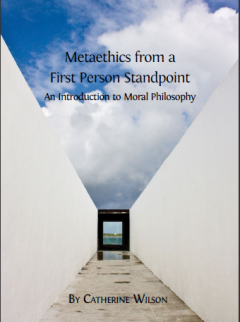
Meta ethics from a First Person Standpoint : An Introduction to Moral Philosophy
Metaethics from a First Person Standpoint addresses in a novel format the major topics and themes of contemporary metaethics, the study of the analysis of moral thought and judgement. Metathetics is less concerned with what practices are right or wrong than with what we mean by ‘right’ and ‘wrong.’ Looking at a wide spectrum of topics including moral language, realism and anti-realism,…
- Edition
- -
- ISBN/ISSN
- 9781783741984
- Collation
- -
- Series Title
- -
- Call Number
- 101 WIL m
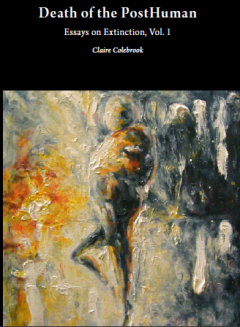
Death of the PostHuman : Essays on Extinction, Vol. 1
Death of the PostHuman undertakes a series of critical encounters with the legacy of what had come to be known as 'theory,' and its contemporary supposedly post-human aftermath. There can be no redemptive post-human future in which the myopia and anthropocentrism of the species finds an exit and manages to emerge with ecology and life. At the same time, what has come to be known as the human - …
- Edition
- -
- ISBN/ISSN
- 13 978-1-60785-299-5
- Collation
- -
- Series Title
- -
- Call Number
- 101 COL d
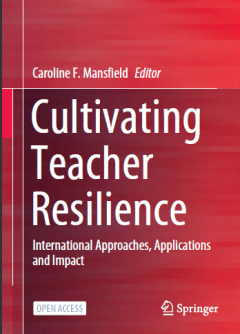
Cultivating Teacher Resilience : International Approaches, Applications and I…
This open access book follows the development of the Building Resilience in Teacher Education (BRiTE) project across Australia and internationally. Drawing on the success of this project and the related research collaborations that have since emerged, it highlights the importance of cultivating resilience at various stages of teachers’ careers. Divided into three sections, the book includes c…
- Edition
- -
- ISBN/ISSN
- 978-981-15-5963-1
- Collation
- -
- Series Title
- -
- Call Number
- 150 CUL
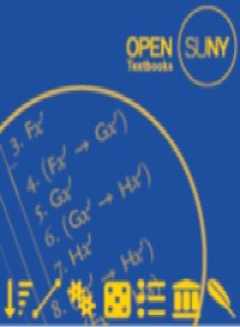
A Concise Introduction to Logic
A Concise Introduction to Logic is an introduction to formal logic suitable for undergraduates taking a general education course in logic or critical thinking, and is accessible and useful to any interested in gaining a basic understanding of logic. This text takes the unique approach of teaching logic through intellectual history; the author uses examples from important and celebrated argument…
- Edition
- -
- ISBN/ISSN
- 978-1-942341-42-0
- Collation
- -
- Series Title
- -
- Call Number
- 150 DEL c
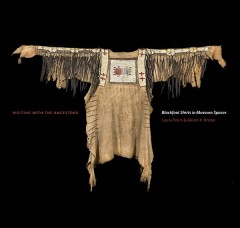
Visiting With the Ancestors Blackfoot Shirts in Museum Spaces
In 2010, five magnificent Blackfoot shirts, now owned by the University of Oxford’s Pitt Rivers Museum, were brought to Alberta to be exhibited at the Glenbow Museum, in Calgary, and the Galt Museum, in Lethbridge. The shirts had not returned to Blackfoot territory since 1841, when officers of the Hudson’s Bay Company acquired them. The shirts were later transported to England, where they h…
- Edition
- -
- ISBN/ISSN
- 9781771990370.01
- Collation
- -
- Series Title
- -
- Call Number
- 10.5 x 10, 232 pages
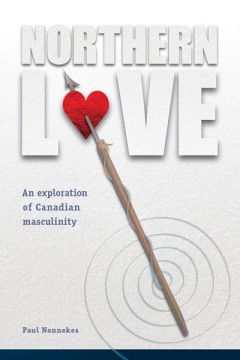
Northern Love An Exploration of Canadian Masculinity
In Northern Love, Paul Nonnekes proposes a conception of love suggestive of a distinctive model of Canadian masclinity. He pursues debates in psychoanalysis and cultural theory in relation to two representative male characters in novels by Rudy Wiebe (A Discovery of Strangers) and Robert Kroetsch (The Man from the Creek).
- Edition
- -
- ISBN/ISSN
- 9781897425220.01
- Collation
- -
- Series Title
- -
- Call Number
- 145 pages
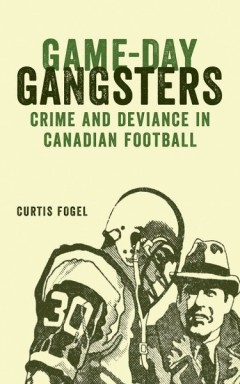
Game-Day Gangsters Crime and Deviance in Canadian Football
In Game-Day Gangsters, Fogel argues for a review of the systems by which Canadian football is governed and analyzes the reforms proposed by football leagues and by players. Juxtaposing material from interviews with football players and administrators and from media files and legal cases, he explores the discrepancies between the players’ own experiences and the institutional handling of disci…
- Edition
- -
- ISBN/ISSN
- 9781927356531.01
- Collation
- -
- Series Title
- -
- Call Number
- 176 pages
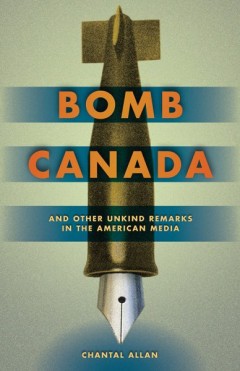
Bomb Canada and Other Unkind Remarks in the American Media
Canada and the United States. Two nations, one border, same continent. Anti-American sentiment in Canada is well documented, but what have Americans had to say about their northern neighbour? Allan examines how the American media has portrayed Canada, from Confederation to Obama’s election. By examining major events that have tested bilateral relations, Bomb Canada tracks the history of anti-…
- Edition
- -
- ISBN/ISSN
- 9781897425497.01
- Collation
- -
- Series Title
- -
- Call Number
- 154 pages

Handbook of Consultation-Liaison Psychiatry
This updated resource refines and expands on both the core concepts and the real-world practice of consultation-liaison psychiatry in medical settings. New and revised chapters provide background and basics and describe CL psychiatry approaches to managing a wide array of common conditions, including heart disease, dementia, anxiety and depressive disorders, alcohol and substance use problems, …
- Edition
- -
- ISBN/ISSN
- 978-3-319-11004-2
- Collation
- XVI, 561
- Series Title
- -
- Call Number
- 150 HAN
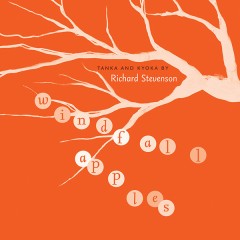
Windfall Apples Tanka and Kyoka
The venerable tanka and her upstart cousin kyoka mingle with Kerouac’s American pop haiku in five-liner imagist poems and linked sequences. In Windfall Apples, Richard Stevenson mixes east and west with backyard barbecue and rueful reflection.
- Edition
- -
- ISBN/ISSN
- 9781897425886.01
- Collation
- -
- Series Title
- -
- Call Number
- 129 pages
 Computer Science, Information & General Works
Computer Science, Information & General Works  Philosophy & Psychology
Philosophy & Psychology  Religion
Religion  Social Sciences
Social Sciences  Language
Language  Pure Science
Pure Science  Applied Sciences
Applied Sciences  Art & Recreation
Art & Recreation  Literature
Literature  History & Geography
History & Geography